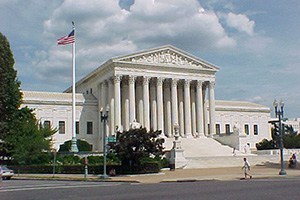 It’s been nearly three weeks since the devastating West Virginia chemical spill that left 300,000 residents without water occurred. In an effort to prevent future chemical spills of this magnitude, three U.S. senators, Joe Manchin (D-W.Va.), Barbara Boxer (D-CA) and Jay Rockefeller (D-W.Va.) introduced a new bill that would place greater restrictions and safety measures on companies that handle potentially hazardous chemicals.
It’s been nearly three weeks since the devastating West Virginia chemical spill that left 300,000 residents without water occurred. In an effort to prevent future chemical spills of this magnitude, three U.S. senators, Joe Manchin (D-W.Va.), Barbara Boxer (D-CA) and Jay Rockefeller (D-W.Va.) introduced a new bill that would place greater restrictions and safety measures on companies that handle potentially hazardous chemicals.
The West Virginia Chemical Spill
Originally, it was believed that 5,000 gallons of the coal-cleaning chemical 4-methylcyclohexanemethanol (MCHM) had leaked into West Virginia’s Elk River, but this estimate was later bumped up to the 7,500 gallons and then 10,000 gallons. Regardless as to the exact amount, the effects were nothing short of devastating. President Obama declared it an federal emergency and residents in nine of the affected counties were asked to avoid the tap water. This placed a severe burden on the state, as businesses were forced to close and hospitals become overburdened with cases of poisoning.
Unfortunately, it only takes a small leak to send an entire region into a state of emergency, as shown in the recent West Virginia incident. The company responsible for storing the chemical, Freedom Industries, failed to provide an effective secondary containment wall, at which point the MCHM chemical was able to leak out of the storage tank and make its way down to the Elk River. Freedom Industries has since filed for bankruptcy, but the effects of their MHCM spill will be felt for years to come.
About The Chemical Safety and Drinking Water Act
The Chemical Safety and Drinking Water Act is designed to prevent instances such as this from occurring. There’s no way to completely prevent all spills from occurring, but this bill is just one more precautionary measure to help lower the chance.
Senator Boxer said the following:
“It is critical that children and families across the nation have access to clean, safe drinking water, and our legislation makes it clear that if a chemical poses a risk to a water supply, it will be subject to safe practices so we won’t see this anxiety unleashed again.”
Among other things, the Chemical Safety and Drinking Water Act requires all above-ground chemical storage facilities to go through regular stare-approved screening. Another key point of the bill involves the municipal tap water system. If approved, it will ensure that all drinking water systems have the tools, experience and information required to respond to emergency chemical spills.
You can read more about the Chemical Safety and Drinking Water Act at the Congress website.